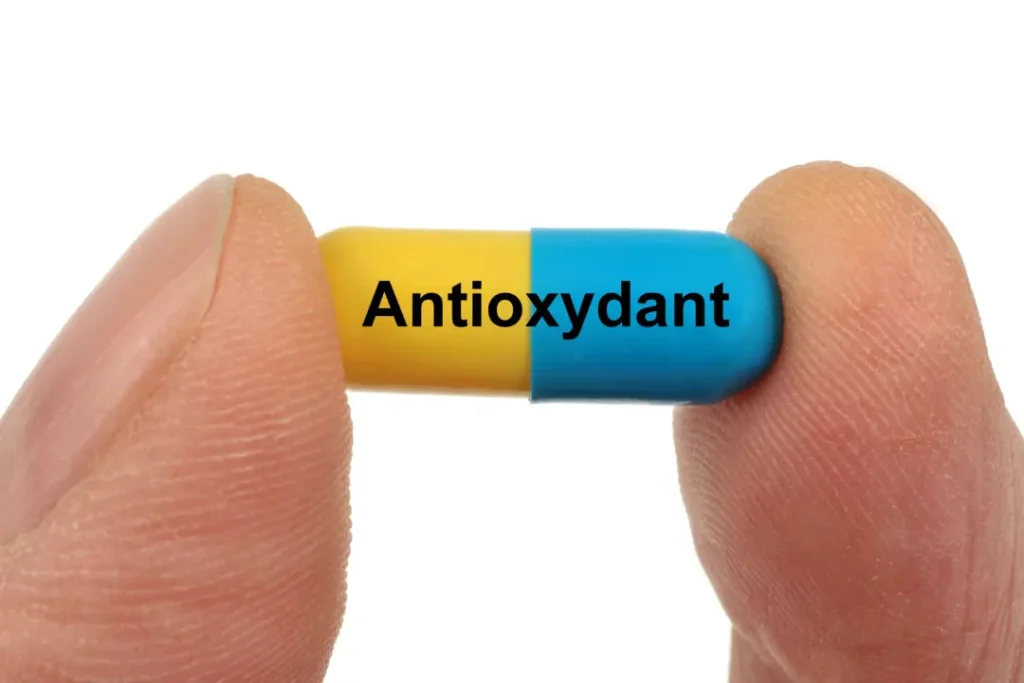Due to its potential to improve cognitive function, Deanol, also known as dimethylaminoethanol (DMAE), has attracted a lot of attention in the nutritional supplement market. The nature of Deanol, its health advantages, ideal dose, adverse effects, potential drug interactions, and best responsible applications are all thoroughly examined in this article.
You May Also Like:
The Best Mushroom Supplements for Memory: 5 Top Brands Reviewed
Finding the Best Supplements for Brain Fog After COVID: 5 Top Brands Reviewed
Deanol: Benefits, Dosage, Side Effects, Drug Interactions, and Other Important Information is an original (NootropicsPlanet) article.
Nature of Deanol
Chemically speaking, Deanol is classified as a beta-hydroxy molecule. It is a naturally occurring chemical that is present in our brains and some foods, such as fish, in trace levels.

Health Benefits of Deanol
- Cognitive Enhancement Capabilities: Deanol is well known for having the ability to enhance cognitive function. It has been hypothesized that Deanol boosts acetylcholine synthesis, a vital neurotransmitter involved in memory, learning, and muscular contraction.
- Antioxidant Capabilities: It has been established that Deanol possesses antioxidant capabilities, which may be accomplished through stimulating the formation of antioxidants such glutathione, superoxide dismutase, and other enzymes that scavenge free radicals.
- Mood Control Capabilities: According to certain research, Deanol may improve mood, potentially by influencing cholinergic transmission.

Chemistry of Deanol
Deanol (DMAE) is a kind of ethanolamine since it has two methyl groups joined to an amino ethanol group as part of its chemical structure. As a result, DMAE is an analog of choline, a key building block of acetylcholine, a neurotransmitter essential for many bodily and mental processes. Deanol may easily pass the blood-brain barrier due to its size and lipophilic makeup, putting it ideally for interactions with the central nervous system.
Physiological Mechanism of Action
Deanol’s function as a choline precursor is its main mode of action. Deanol has potential to boost choline synthesis in the brain, which is subsequently utilized to create acetylcholine. This neurotransmitter is essential for controlling muscle tone and cognitive processes. This is the main mechanism through which Deanol produces its cognitive-improving benefits.
Deanol also seems to stimulate the synthesis of endogenous antioxidants. Antioxidant enzymes including catalase, glutathione peroxidase, and superoxide dismutase are stimulated by it. These enzymes are essential for scavenging dangerous free radicals and lowering oxidative stress in cells. The neuroprotective benefits of this antioxidant activity may also improve the health and function of the brain.
The particular processes through which Deanol functions are still not fully known and are a subject of continuous study, even though the previously stated ones are currently the most frequently acknowledged by various relevant communities. This ambiguity highlights the need for more research in the field and your prudence when using it as a dietary supplement.
Potential DMAE users should speak with their respective healthcare professionals before using the drug to discuss the advantages and disadvantages, as well as to determine the best dose for their unique requirements. This is true of any chemical that might impact physiological functioning.

Optimal Dosage of Deanol
The ideal Deanol dose depends on a number of variables, including age, general health, and the intended therapeutic purpose. Clinical investigations, however, often use doses of 100 to 600 mg daily. As with any dietary supplement, it’s critical for you to follow the dose guidelines provided by a healthcare professional or those listed on the product label.

Side Effects of Deanol
Despite having some health advantages, DMAE has a number of negative side effects. Constipation, nausea, and vomiting are gastrointestinal symptoms that are frequently experienced. Numerous users have mentioned experiencing neurological side effects, including headaches, fatigue, disorientation, and vivid nightmares.
Potential Substance Interactions with Deanol
Drugs that impede the effect of acetylcholine, such as Deanol, may interact with one other. Concurrent usage may reduce the supplement’s or medication’s efficacy. Also, Deanol could conflict with sedatives or sleep aids due to its stimulatory properties. As always, before using DMAE with other medications, you should speak with a doctor.
Best Responsible Uses of Deanol
The usage of Deanol should be addressed responsibly, which includes you having a thorough awareness of both its advantages and disadvantages. Before beginning a Deanol program, it is crucial for you to speak with a healthcare professional to discuss any potential dangers, advantages, and interactions with other medications. As always, it’s essential to take into account personal health considerations, particularly for those of you who have a history of seizures or bipolar illness because DMAE may make these diseases worsen.
Deanol has remarkable potential as a mood stabilizer and cognitive enhancer due to its special chemical characteristics and physiological activities. Due to possible negative effects and interactions, its use should be undertaken cautiously. The specific methods of action, ideal doses, and possible therapeutic uses of this interesting chemical may all be clarified in the future.
Deanol:
Conclusion
Deanol’s chemical structure which lends itself to cross the blood-brain barrier with ease and the bioactive substances present within that chemical structures seem to be the leading reasons why this substance has the potential it does for health improvement. Due to its natural strength and chemical make-up, users have to think about a lot of personal factors that may interfere with the manifestation of Deanol’s positive benefits. DMAE both supplements and catalyses important processes in the brain and central nervous system. Among what it may be able to do for you, results include improved mood, improved cognitive function, and increased presence of antioxidants.
References:
- “Deanol – Uses, Side Effects, and More.” Retrieved from: https://www.webmd.com/vitamins/ai/ingredientmono-524/Deanol
- “Deanol in minimal brain dysfunction.” Retrieved from: https://pubmed.ncbi.nlm.nih.gov/590062/
- “Deanol.” Retrieved from: https://pubchem.ncbi.nlm.nih.gov/compound/Deanol
Important Note: The information contained in this article is for general informational purposes only, and should not be construed as health or medical advice, nor is it intended to diagnose, prevent, treat, or cure any disease or health condition. Before embarking on any diet, fitness regimen, or program of nutritional supplementation, it is advisable to consult your healthcare professional in order to determine its safety and probable efficacy in terms of your individual state of health.
Regarding Nutritional Supplements Or Other Non-Prescription Health Products: If any nutritional supplements or other non-prescription health products are mentioned in the foregoing article, any claims or statements made about them have not been evaluated by the U.S. Food and Drug Administration, and such nutritional supplements or other health products are not intended to diagnose, treat, cure, or prevent any disease.


